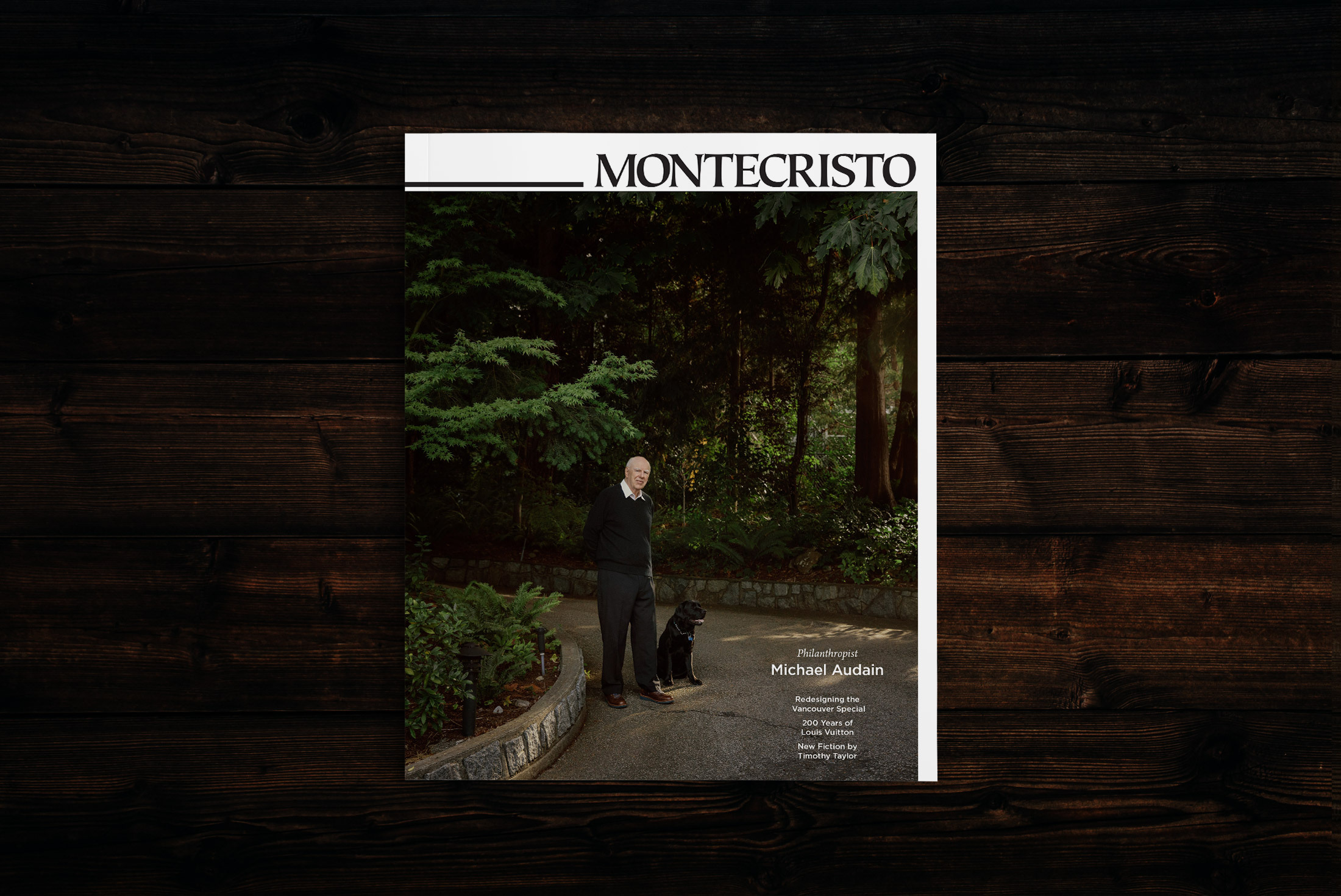Welcome to our new issue! Read our cover story on philanthropist Michael Audain. Pick up a copy, grab a subscription, or sign up for our newsletter for the best of MONTECRISTO every week in your inbox.
A friend of mine is moving. He’s been painting and fixing up and decluttering in anticipation of listing his apartment. He showed me images of his newly neutered blank, white walls, and asked for help.
I’m also in the process of decluttering. Decades-worth of things collected, taking up space, locking me in the past. It has to go. Not because I’m a minimalist—I’m not. But because it weighs heavy, suffocating me in memories, drowning out the present, and casting shade on the future. With each piece of the past I remove, rehome, or recycle, a tiny possibility is born. A growing lightness of being.
The framed movie posters that filled me with inspiration and joy in every home I have lived in across three decades now lean with their fronts facing the walls. My friend asked if I will lend them to brighten up his place as part of the staging. It’s funny to think that pictures so personal to me, so rooted in the time and mood of their purchase and framing, can, in another space, be impersonal enough to become staging decor. To me, they cut as deep as any family portrait.
I am at the beginning of my own reframing—despite the boxes and boxes of stuff that have been dispatched, my home is in chaos. Change is messy and exhausting, and I am too good at identifying something more pressing or more interesting to do. But my friend has a deadline: the apartment must be listed; the space must be pristine and presentable. My deadlines are all made up, so easily missed. Nevertheless, this time of year brings a certain natural cut-off, so I am making goals in my mind—this room and that one to be sorted before January—because the desire for space is mental, not physical
What we choose to keep, to collect, to be surrounded with is an extension of ourselves. If we lose who we are, even briefly, those belongings begin to lose their lustre. Talismans become albatrosses. Our connection to them changes as we change.
For some, a passion that begins in youth only grows with age. In this issue, we explore different passions from different perspectives: the compulsion to collect records born out of a suburban childhood; the love of tradition and artisanship—from choosing to write a book longhand, to the intense rearing of ibérico pigs for pata negra, to 200 years of attention to quality and detail at Louis Vuitton.
There should always be space for friendships in our lives, and we meet two BFFs who spent their pandemic co-writing a relationship guide long-distance via Zoom. And in “The Coywolf Clearing,” Vancouver author Timothy Taylor catches up with two old friends—characters from his novel Stanley Park—in an original short story written for MONTECRISTO.
Creating spaces is at the core of Michael Audain’s life. With Polygon, he has built thousands of homes as well as two art galleries. Most recently, he made an enormous contribution to aid the Vancouver Art Gallery in its goal of a new space. But his spaces are not all physical: through his extraordinary art collection, much of which is on display at his gallery in Whistler and elsewhere, he offers us all inspiration for our hearts and minds. The emotional space we clear for art is precious, ephemeral, and deeply personal, and any chance to experience it in person is a gift. The protection and preservation of the extraordinary art of British Columbia is Audain’s gift to us all. We are delighted to feature him on our cover.
Read more from our Winter 2021 issue.









